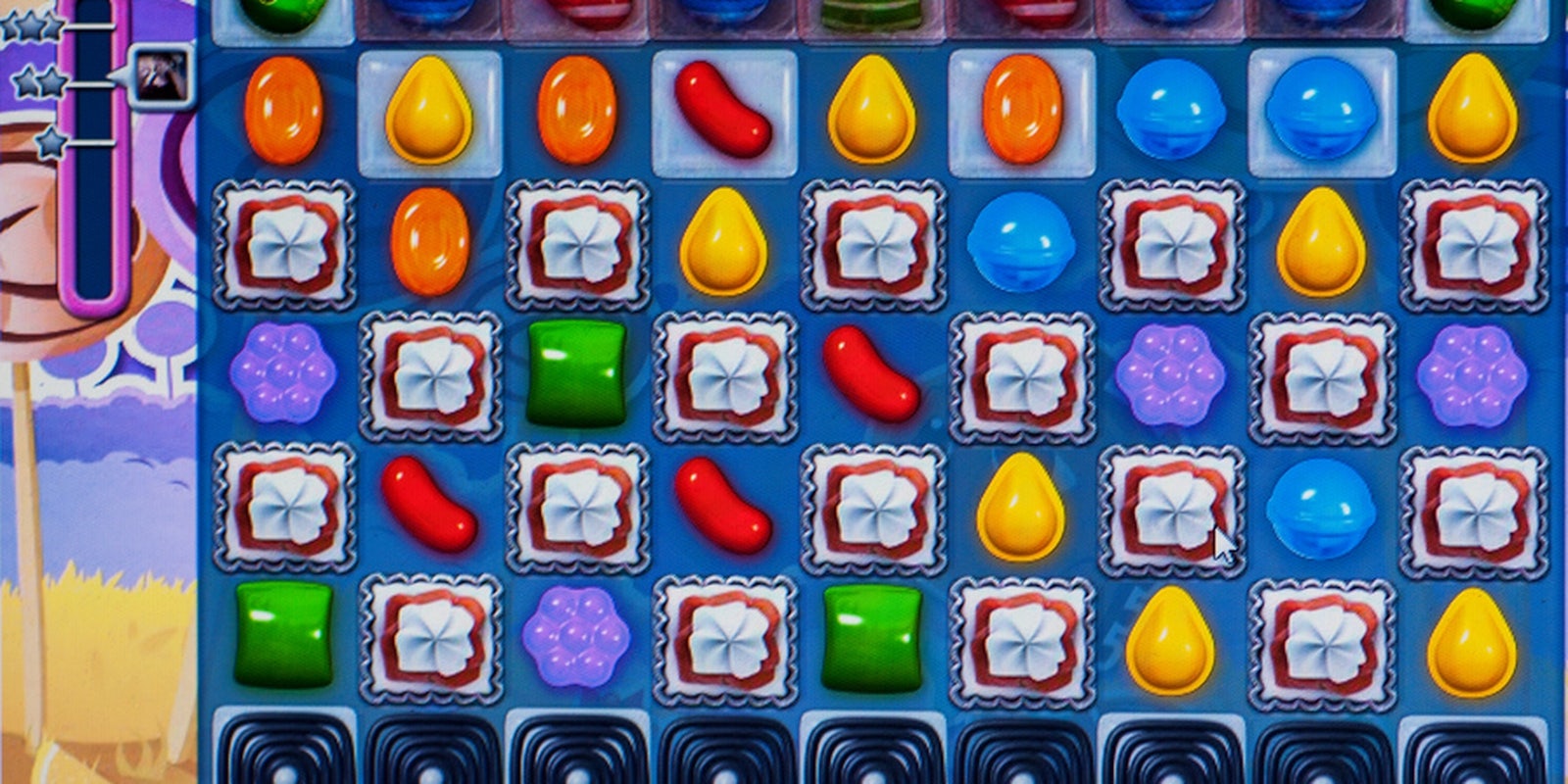Don’t let the apparent innocence of those glittery candies fool you. Candy Crush Saga makes more than $860,000 a day by directly capitalizing on the failure of its more than 7.4 million daily active users.
That’s right — Candy Crush wants you to lose. What’s more, you’re addicted to it because you are losing.
Basic cognitive science explains why
At its core, Candy Crush is about linking our natural attraction to patterns (think Gestalt Theory of Perception) up to a subtly shrewd reward system. This scheme undermines users’ ability to learn, which is how the game continually separates you from your money.
Charles L. Mauro of MauroNewMedia explains that effective games teach in two ways.
The first is “conceptual fluency,” or quickly grasping the general concept of the game. Think of it like the “WHAT” of a game’s conceptual structure.
The second is “procedural fluency,” or understanding how to reach the game’s solutions. It can be thought of as the “HOW.”
Take Angry Birds for an example: the storyline and objective (the “WHAT”) are clear within the first ten seconds of play: slingshot birds to destroy pigs.
Learning the “HOW” is continuous throughout gameplay. Every single attempt adds further information to the user’s arsenal. Gaining access to higher levels means undergoing training in all those below.
Candy Crush’s UX, on the other hand, is designed so that you fail
The “WHAT” is obvious: swap candies to create sets of three (or more) of the same color.
However, the “HOW” is designed to be near-impossible to learn. Instead of step-by-step training you a-la-Angry Birds, Candy Crush constantly introduces flashy new elements and modes of play. You can’t effectively learn to play because the game prevents you from doing so.
Candy Crush teaches you the basic game mechanisms in easy introductory stages that lure you into feeling the glow of quick success. It then systematically pulls that understanding out from under you.
What good comes from repeatedly losing? Simple:
Candy Crush monetizes against their users’ ability to learn
Ramin Shokrizade of Gamasutra explains, “Once the consumer has been marked as a spender… the game difficulty ramps up massively, shifting the game from a skill game to a money game as progression becomes more dependent on the use of premium boosts than on player skills.”
When you face new challenges, you are given a limited amount of attempts. These are consistently insufficient to learn the new game mechanics properly.
When you inevitably lose, you are given several options, all reinforcing your sense of incompetence. You can wait out the regeneration period, a time-based punishment for your failure. You can irritate your friends via Facebook, publicizing your failure.
Or you can plunk down cold, hard cash, paying for your failure.
When you cave in and pay up, you don’t learn. Candy Crush is banking on that too.
Paying for access to higher levels without actually training for them creates a highly profitable feedback loop for King. You’ll go into these levels unprepared and inevitably face further failure. In order to avoid it, you bust out your credit card.
Ad infinitum.
In sum: The more you fail in Candy Crush, the less you learn, and the more you spend
Jumping over the levels with boosts means you’re unprepared for the challenges ahead, and you’re likely to fail again.
Stomach a little upset from all that sugar? Not mine.
Candy Crush Saga is the massive modern success story, clearly one for the books. Not only has King’s strategy worked to generate gobs in revenue, but its millions of users also derive a great deal of fun from it every day. Every single day. Or else.
Janel Torkington is a professional m-gamer/sassy futurist with a lexical fixation. She cares deeply about wine and words. She currently sleeps in a hammock in Barcelona. This article was originally featured on Medium and reposted with permission.
